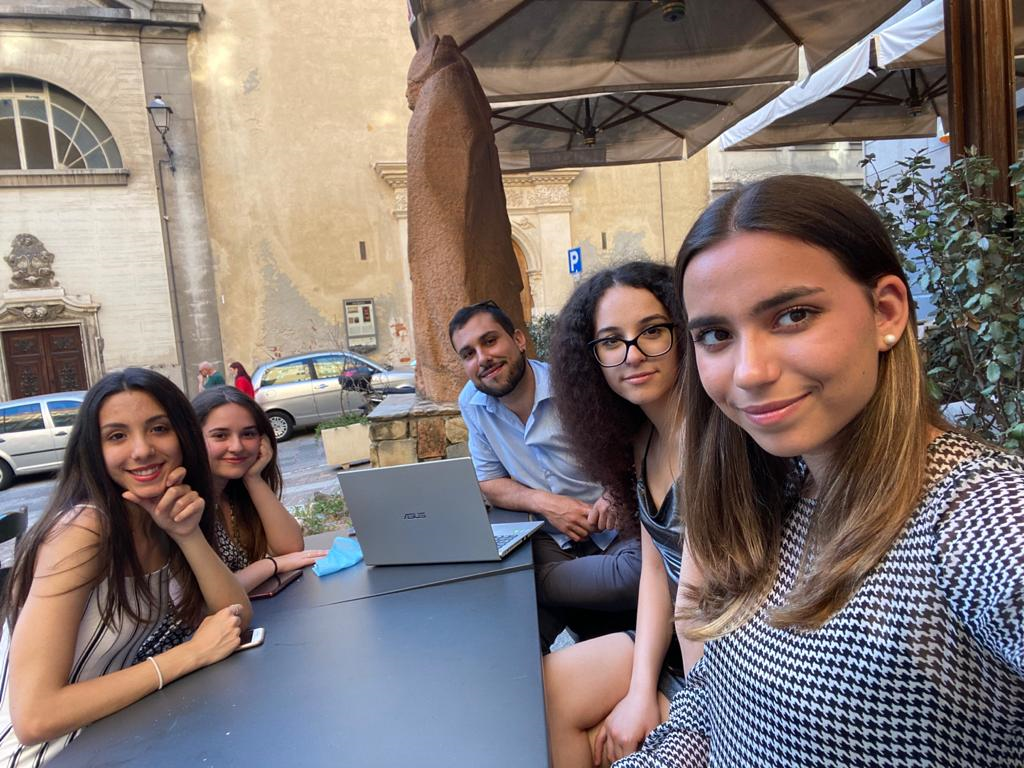Focus Group
Project “YOUth Ambassadors of Non-Formal Learning”
Country: Italy
Facilitator: Associazione TDM 2000
Date and location: 22.06.2020 – face to face
List of questions for Focus Group
- Do you think for NFE is important age, gender, nationality?
- What does NFE mean to you? Can you define?
- Have you ever been a participant in an NFE program? If yes – in which one?
- Do you know something about Youth Law / Strategy / Action Plan, as well as other documents related to youth?
- Have you ever participated in the youth decision-making process? If yes, in which one?
- Do you think that more support from the Government is needed to improve the status of young people and in the NFE sphere? If yes, what are the benefits of this, and what are the disadvantages?
- Does NFE activities help you for your personal development. If yes, how? If not, why?
- For you, why is it important to be involved in activities through non-formal education?
- Does virus Covid19 influence on non-formal education and how in your opinion?
Discussing with the group it emerged that in non-formal education it is indifferent to age, gender or nationality, what matters is everyone's interest in trying something new and getting out of their comfort zone by learning through innovative methods. Non-formal education can be defined as an alternative method of learning. A horizontal relationship is established in which one's skills are applied directly in the field and together they build knowledge. It is the set of activities aimed at fostering the personal and social growth of an individual and take place outside formal school education, it is a great opportunity for participants as they are led to develop a critical awareness and a spirit of inclusion.
All participants of the focus group have experienced Non Formal Education first-hand. Who in a photography project carried out during school alternation work and through participation in various international mobility projects (Youth Exchanges).
It also emerged that young people are often excluded from the youth decision-making process and that they do not know the strategies and action plans on the subject.
According to the group, the government and institutions should support non-formal education more through funding and recognition so that young people are directed towards new experiences and personal growth that would improve them but also those close to them. The Government should therefore provide more funding to foster international mobility and develop new programmes to offer young people more opportunities for study and work experience or volunteering abroad and to improve the status of young people.
Non-formal education activities certainly help personal development by making new knowledge and giving you the opportunity to learn new topics, allowing you to acquire skills and knowledge such as: flexibility, creativity, responsibility and the ability to work in a team to achieve common goals.
Being involved in an activity through non-formal education is important because you can get out of your daily life both to learn new points of view and to broaden your own views. It is important because they lead to the improvement of group dynamics and to stimulate active participation. They are initiatives that focus on the inclusion of everyone, even those who have fewer opportunities and that provide a concrete opportunity to improve identity, quality of life and contribute to realizing desires and increasing talent and potential.
Certainly because of Covid-19, group work and interpersonal relationships will be penalized, since most of the skills that develop through this type of education derive directly from the ability to relate to others, from the experience gained during the activities; however, with the right precautions, non-formal education will not find many obstacles. The facilitator, in accordance with the participants’ thinking, suggests a greater awareness of recognition, development of non-formal education and inclusion of young people in the decision-making process.







